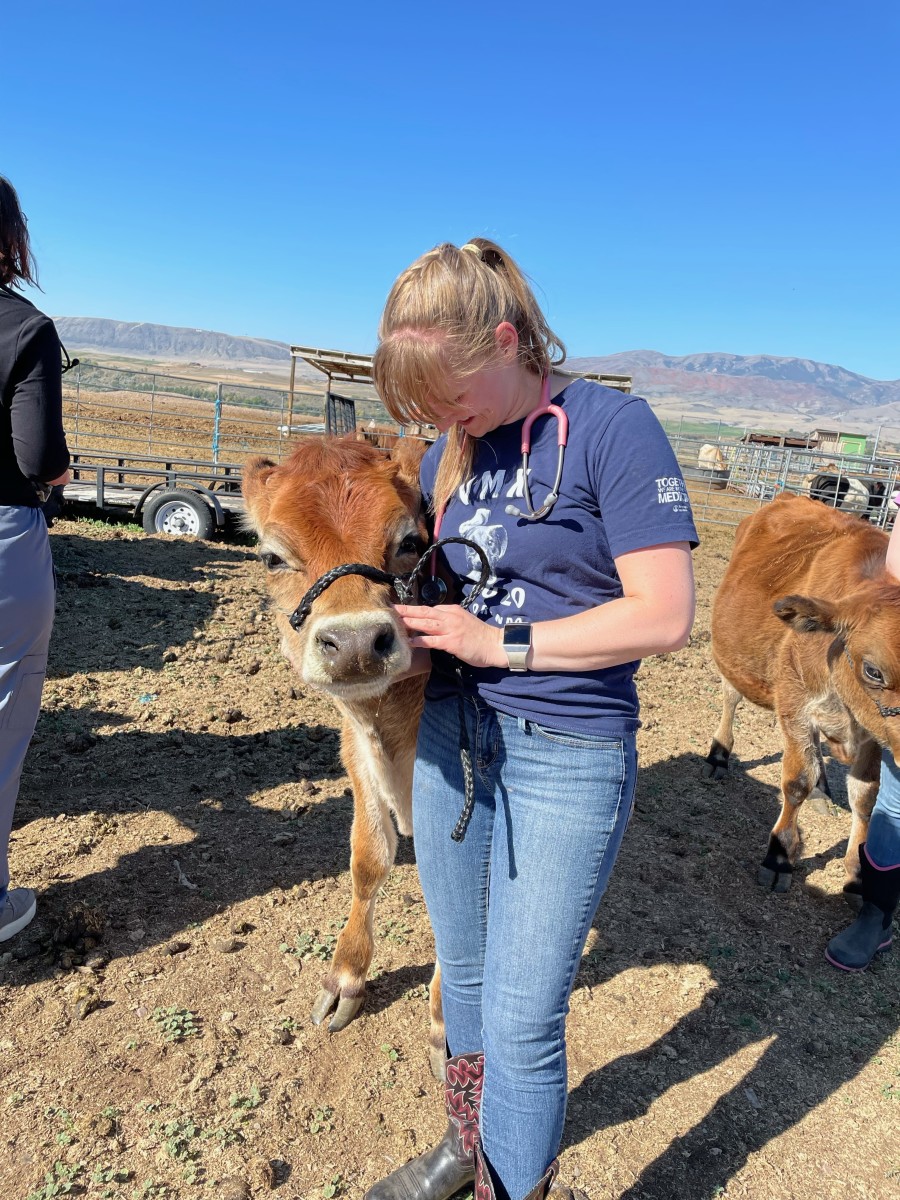Getting a Job as a Teaching Assistant (UK)
A Teaching Assistant at Work

What is a Teaching Assistant?
Increasing numbers of teaching assistants (TAs) have been recruited over the past decade in the UK's primary and secondary schools. Generally, a teaching assistant works in a classroom to support the teacher. What does that entail? That depends largely on the school and the teacher and, to a degree, the teaching assistant. One of the joys (and frustrations) of being a teaching assistant is that the jobs is very flexible and often fluid. One day you might be leading the class in an activity, the next you might be scrubbing tables. Interested? Then read on ...
Where to Find Teaching Assistant Jobs
Teaching assistant vacancies may be advertised in the local press, on the local authority's website, the school's website or in a newsletter. If you have a child at the school you may hear about a post by word of mouth.
Other Names for a Teaching Assistant
"Teaching assistants" aren't the only people who help out in classrooms. There are a few different names for the adults who support a teacher. These are:
Learning Support Assistant
Classroom Assistant
Learning Mentor
Qualifications Needed to be a Teaching Assistant
In the UK there are no entry level qualifications for teaching assistants. However, many schools would expect a candidate to have a GCSE in English and Mathematics, but this is by no means a requirement. Not only do many teaching assistants perform their jobs very well without formal qualifications but many go on to gain qualifications once they are working.
Although there are few qualifications required, it is not unusual these days to find extremely well qualified people working as teaching assistants. With teaching posts at a premium many qualified teachers works as assistants. There are also many graduates who want to try out life in the classroom to find out whether they want to go on to train for a career in teaching, or who hope that some classroom experience will give them the edge on their college application form.
One Top Tip to Get A Teaching Assistant Job
Volunteer! If you have a chance, volunteer to work at your local school. You don't need to make an ongoing commitment, but help out on school trips, offer to hear children read for half an hour a week or run an after school club. Volunteering shows your commitment and gives you experience. Should a vacancy come up at the school in which you volunteer, if you are doing well, it should give you an edge over the competition. If a job comes up at another school, you have experience to put on your application form and a reference from a headteacher - again, vital points in your favour.
Teaching Assistant Job Description
It's hard to give a definitive job description for a typical teaching assistant because it varies from school to school and from primary to secondary. In general, a teaching assistant could expect to work with groups or individuals, both in and out of the classroom. There is also a degree of classroom organisation involved, eg setting up equipment.
At primary schools, teaching assistants often stay with one, or perhaps two, classes. As the teaching assistant is with one group it is more likely that he or she will build up a rapport with the teacher and the class. However, in secondary schools the teaching assistant might stay within a curriculum area (eg Maths), be assigned to a particular student or move between a variety of groups and subjects.
School Visits are Important for Teaching Assistant Candidates

Teaching Assistant Interview Resources
Find out about teaching and learning, behaviour, inclusion and the curriculum at the government's education site here.
If you would like to look at a school's Ofsted report, visit the Ofsted site.
Preparing for a Teaching Assistant Interview
Landing an interview is an achievement in itself; often schools received scores of applications for a post. Make the most of an invitation to an interview by preparing yourself.
- Visit the school
If possible, visit the school prior to the interview. Many schools will offer potential applicants this opportunity when they advertise the job. If you can visit, make sure you do and be aware of that old adage "first impressions count". Dress appropriately, take an interest in the children and if the opportunity presents itself, speak to the class teacher.
- Research the school
The interview panel will almost certainly ask candidates why they want to work at the school. The obvious answer might be that it is the only school within a fifty mile radius that is recruiting, but your job is to make them feel special. You can do this in a number of ways, but always try to weave in their marvellous Ofsted results, which can be viewed on the Ofsted website. Try to read the school's prospectus. What do they seem particularly proud of? Is it their friendly family atmosphere, their improving results or their music department? Pick something to mention. If you have personal experience of the school, mention it.
- Research the education system
The education system moves fast and many people are at a loss to know how schools are organised, how lessons work and haven't a clue about the latest education jargon. If you don't know your Foundation Stage from your Key Stage Four or your Synthetic Phonics from your Ethics and Philosophy, do a little research on the government's education site.
- What about you?
Think through your answers to the stock interview questions: what can you offer the school, what are your strengths and what are your weaknesses? In addition, consider your views on discipline, how you work as part of a team and how you can work on your own initiative.
Teaching Assistant Wages
Becoming a teaching assistant is not going to make you wealthy. The salary advertised often looks reasonable until you take in to account the "pro rata" factor. Whilst teachers are paid a salary per annum, their assistants are paid for the hours they work a week (generally no more than 30 hours, could be as little as 5) and for the weeks they work per year (so usually around 40 weeks).
This substantially reduces earnings, so that many teaching assistants are earning less than £10,000 per year. No surprise that many boost their wages by working at lunchtimes as lunchtime supervisors or take on cleaning duties at the school.
Teaching Assistant Career Development
In many ways, being a teaching assistant is a dead-end job. There is little career progression without undertaking further training. You may develop your career by taking qualifications, such as GCSEs, particularly if they are relevant to your job and there is occasionally funding through the school to do so. There are also National Vocational Qualification (NVQs) available for teaching assistants and again, funding is sometimes available.
There has been a move towards training Higher Level Teaching Assistants (HLTAs), who take on additional duties (perhaps covering short term absence). There is not a qualification for HLTAs, but there is a course and if passed this leads to HLTA status being awarded.
Schools are also occasionally encouraging some teaching assistants to take on jobs as Cover Supervisors, which means that they cover teachers' unplanned absences. This allows the school to save money in hiring in supply teachers.








